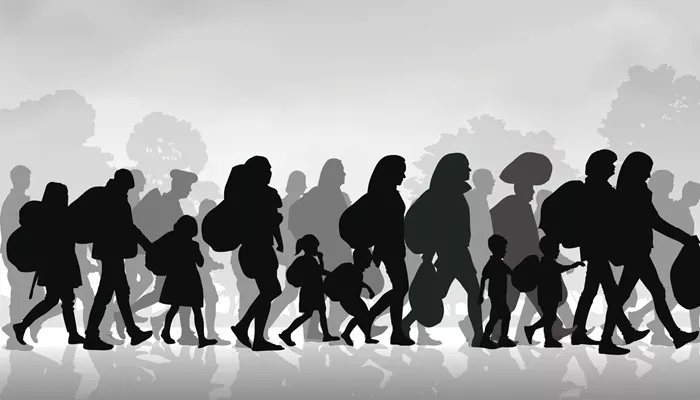Becoming a legal resident in a new country is a dream for many immigrants. However, the journey is often fraught with challenges. This article explores the difficulties immigrants face in navigating the complex legal system, from understanding immigration laws to the emotional toll of uncertainty.
Understanding Immigration Laws
Immigration laws vary significantly from country to country. In the United States, for example, the legal framework is intricate and often confusing. There are various visa categories, each with specific requirements. Many immigrants do not have the legal knowledge to navigate these complexities.
Types of Visas
There are several types of visas, including:
Family-based visas: For those with family members who are citizens or legal residents.
Employment-based visas: For individuals who have job offers from U.S. employers.
Student visas: For those who wish to study in the country.
Asylum or refugee status: For individuals fleeing persecution in their home countries.
Understanding which visa applies to their situation can be overwhelming for many immigrants.
Application Process
The application process for these visas can be lengthy and complicated. It often involves:
Gathering Documentation: Immigrants must collect various documents, including birth certificates, financial records, and proof of employment.
Filling Out Forms: Many forms require precise information, and a small mistake can lead to delays or denials.
Interviews: Applicants may need to attend interviews at embassies or consulates, which can be intimidating and stressful.
Many immigrants struggle to complete these steps correctly, leading to increased anxiety.
Financial Barriers
The financial burden of applying for legal status is another significant obstacle. The costs associated with the immigration process can be overwhelming.
Application Fees
Most visa applications require substantial fees. For instance, the fee for a family-sponsored immigrant petition can exceed $500, while employment-based visas may cost even more. These costs often exclude additional expenses such as:
Legal Fees: Hiring an immigration lawyer can be essential for many immigrants. However, legal fees can range from a few hundred to several thousand dollars.
Travel Expenses: Traveling to interviews or consulate appointments can add to the financial strain.
Medical Exams: Certain visa categories require medical examinations, which also incur costs.
For many immigrants, especially those from low-income backgrounds, these expenses can be prohibitive.
Emotional and Psychological Challenges
The process of seeking legal status can take a toll on the emotional well-being of immigrants. The uncertainty of their status can lead to significant stress and anxiety.
Fear of Deportation
Many immigrants live in constant fear of deportation. This fear is heightened for those who may be in the country without legal status. The threat of being separated from their families or losing their jobs adds to their emotional burden.
Cultural Adjustment
Adjusting to a new culture while navigating legal challenges can be daunting. Immigrants may feel isolated and face discrimination, which can further exacerbate their mental health issues.
Support networks, such as community organizations and immigrant advocacy groups, can provide some relief, but access to these resources is not always guaranteed.
Language Barriers
Language is a critical factor in the immigration process. Many immigrants may not be proficient in the language of their new country. This barrier can lead to misunderstandings and errors in the application process.
Lack of Resources
While there are resources available for non-English speakers, they may not be accessible to everyone. Many immigrants lack the financial means to access translation services or legal assistance, leaving them to navigate the process alone.
Miscommunication
Miscommunication can occur at various stages of the application process. For example, if an immigrant misunderstands a question on a form, it could lead to an application being denied. This risk further complicates their already challenging situation.
Changing Immigration Policies
Immigration policies can change frequently, adding another layer of complexity. Political climates can shift rapidly, affecting existing laws and regulations.
Impact of Policy Changes
When immigration policies change, immigrants may find themselves in uncertain situations. For example, a program that previously allowed certain individuals to apply for legal status may be rescinded, leaving them without options.
This unpredictability makes planning for the future difficult. Many immigrants invest time and resources into applying for legal status, only to find their efforts thwarted by sudden policy changes.
Legal Challenges
Changes in immigration law can also lead to legal challenges. Individuals may need to seek new legal counsel or reassess their options based on the latest regulations. This ongoing need for legal support can further drain their financial and emotional resources.
The Role of Legal Assistance
Legal assistance can significantly impact an immigrant’s ability to navigate the immigration process. However, access to qualified legal aid is often limited.
Availability of Resources
Many non-profit organizations offer free or low-cost legal services to immigrants. However, these resources can be overwhelmed by demand. Immigrants may have to wait weeks or even months for an appointment.
Quality of Representation
Even when immigrants can access legal aid, the quality of representation can vary. Some organizations may have inexperienced staff or limited resources, which can affect the outcome of an immigration case.
Conclusion
The journey to legal residency is filled with obstacles for many immigrants. From understanding complex laws and facing financial barriers to overcoming emotional challenges and navigating language barriers, the process is anything but straightforward. Changing immigration policies only add to the uncertainty.
While legal assistance can help, access to these resources is often limited. Advocacy for more supportive immigration policies and accessible legal services is crucial. By addressing these challenges, we can create a more equitable system that allows immigrants to pursue their dreams of becoming legal residents.
The path to legal status may be difficult, but it is a journey that many are willing to undertake in search of a better life.
Related topics:
- Can a Permanent Resident Get a South African Passport?
- Do Immigrants Receive Social Security at Age 65?
- How Long Does Immigration Hearing Take?


